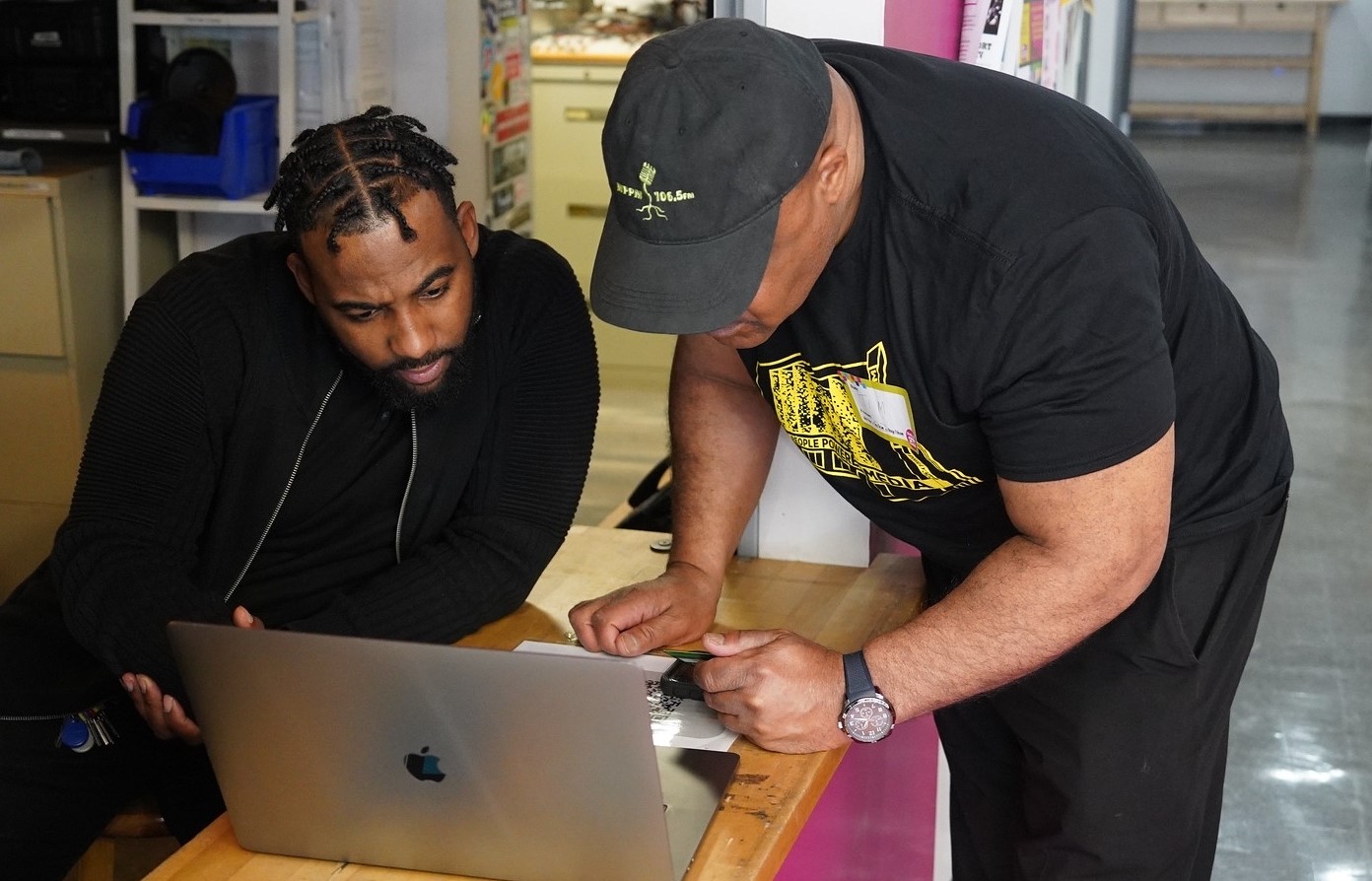PhillyCAM producers' retreat | Photo courtesy of Independence Public Media Foundation
By Sherella Williams
The first rule to choosing a grants management system (GMS) is there is no perfect grants management system. Accepting that upfront will hopefully lessen your stress headaches.
The second rule: the best systems give grants managers the space and flexibility to, as seamlessly as possible, infuse their foundation's values into its grantmaking operations. Having a deep understanding of your foundation’s identity is key.
When I became the grants manager at Independence Public Media Foundation (IPMF) in 2020, our identity was just developing. IPMF was a new Philadelphia-based private foundation that had only begun making grants the year prior. Our goal was to be a trust-based funder with our grantmaking rooted in equity as we resourced community-owned and-led BIPOC media organizations and projects. During these early stages of grantmaking however, our mission and values were still evolving, our grant cycles were somewhat amorphous, and we didn’t have a dedicated GMS infrastructure in place. Over the next few years, “discovery” was the theme of our journey to defining IPMF’s culture, values, and grantmaking practices.
The thing is, discovering your identity takes time and we needed a GMS sooner rather than later. As a trust-based funder, we envisioned a streamlined grants process. Using that as my north star, I researched and selected an established vendor* that offered many features, including the ones we needed:
- a built-in CRM to center grantee relationship-building,
- reporting features to keep ourselves accountable to the communities we served,
- external review capabilities to bring in community decision-making, and
- a seemingly flexible application builder to keep our applications simple.
I learned two important things after choosing and launching our first GMS:
- Having a simple trust-based grant process did not mean that the backend work required to build it was also simple; extensive system features could mean that those bells and whistles will end up getting in your way.
- There is a third rule to choosing a GMS: looks matter. If the GMS you are using isn’t aesthetically pleasing, your team won’t like it—and more importantly, may barely use it! No amount of “how-to” guides (complete with visuals, including encouraging memes) will change that.
While our first GMS didn’t prevent us from creating simple grant applications or launching a community-led decision-making process, the system was not built with minimizing the grantee burden or ceding decision-making power in mind. Achieving ease of use and accessibility for our grantees and my team demand many workarounds. Even the act of creating shorter applications was time-consuming and counterintuitive. I reframed the setbacks as an invitation to lean into creativity, reconfiguring parts of the backend structure to support aspects of our grantmaking like accepting film proposals, operationalizing a community review process, and making space for grantee feedback. I even used dashboards not just as trackers, but as guardrails for my team to find data in a system too bloated for our needs; a system that our grantees were ultimately still struggling with.
By the end of 2023, IPMF staff and board had steadily become more systematized. We had wrapped up a strategic planning process where our updated vision, mission and program areas reflected our goal of moving resources to communities historically harmed by systems of oppression and media erasure. We decided the values of courage, equity, justice, belonging, and joy would guide our work towards a local media landscape that truly reflected the diverse and complex lived experiences of its residents. We were coming into our own as a foundation, and as our GMS subscription would be soon expiring, my job was to find a system that made space for our newly-defined ethos.
Navigating the GMS landscape came with the usual barrage of shiny marketing terms: streamline, impact, workflows, optimization, etc., but an encouraging change from 2020 was the intentional integration of trust-based philanthropy principles in these systems. These vendor conversations were more engaging because we had a shared language around centering grantseekers as primary stakeholders, the need for user-friendly design, and flexible applications that went beyond essay questions. And then we got to pricing.
It became clear that modern simplicity with a trust-based lens came at a steep cost. That is to say investing $25,000 a year in a system was not the move for IPMF given our scope and need.
It was via the PEAK Grantmaking forum where I first caught wind of our future GMS vendor. No one knew them, their website was suspiciously barebones, but it was an intriguing departure from the usual sleek GMS marketing. After our initial conversations, I resonated with how they brought together an advising community of grantseekers and grantmakers to guide the platform development. It showed in the system’s intuitive interface (which my team approved), the flexibility in adapting to our grantmaking processes, and in the ways it encouraged grantee and staff collaboration. Plus as a newcomer to the GMS market, their price was competitive.
Within a month we will complete our GMS transition and I admit there is the uncertainty that comes with leaving behind the familiar. Yet in between the doubts, I’m reminded that a GMS is only one part of the grantmaking equation. The empathy and relationship-building grant managers bring to the process is vital. Our grantees are our partners and an integral part of our community. We work with them as they navigate our systems; we soothe their panics, we provide insight and we extend access.
One of IPMF’s values is belonging, and I see myself uplifting that by creating space for grantees to belong in our processes. We exist to resource their visions in ways that lessen the power-imbalance so inherent in this sector.
So, if you’re slogging through the GMS trenches, let your values (and perhaps your team’s aesthetic preferences) guide you and keep going! I’ll be rooting for you.
*To avoid “pitting” GMS vendors against one another, the systems will remain unnamed.
Sherella Williams is the Office and Grants Manager at Independence Public Media Foundation and enjoys geeking out about databases and processes. If you are in the GMS transitioning process (or also like talking about databases) and have questions, you can reach out to her at sherella@independencemedia.org


